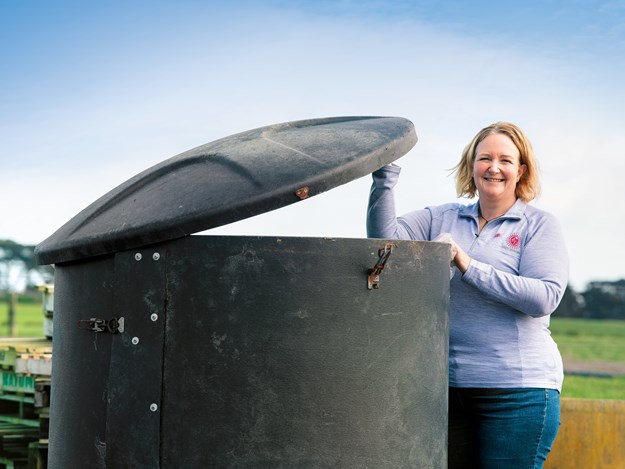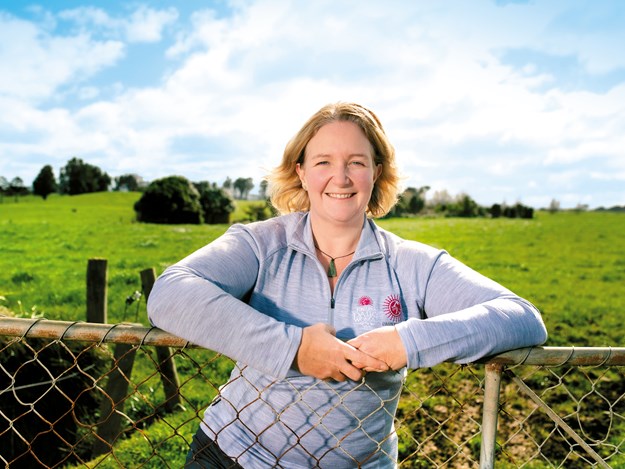Farm advice: Farmers learn from farmers
Working with local communities and farmers is all in a day's work for Trish Rankin, a trustee of Dairy Women's Network
 |
|
Trish Rankin is passionate about environmental practices
|
One of the very first things Dairy Women’s Network Trustee Trish Rankin asks in her Taranaki Catchment Communities workshops is, ‘what do you want your community to look like in five, or 10, or 20 years – and what happens if we don’t do anything different to what we’re doing now?’ It’s a heavy question to put to farmers at different stages in the farm regulation and policy journey. It’s also a valid question for everyone in the industry to consider.
What if we didn’t respond to the call from our collective consumers to improve our environmental practices on farm? Trish knows as well as anyone that it’s not easy, especially when she drives between towns in the Taranaki region with her rubbish to avoid burying or burning anything on her farm. But she also understands the need to respond to the demands of consumers in order to secure our social licence. With a problem-solving mindset, she’s focused on what meeting new regulations can achieve for herself and the wider industry through roles with DEL and as a DairyNZ climate change ambassador.

Her latest role as the project coordinator for the TCC Group spans the entire Taranaki region, where she deals with flat green dairy farms to hill country. She’s working with dairy farmers who’ve been fencing waterways and planting riparian margins for quarter of a century, with reticulated water systems and Farm Environment Plans – those farmers are well down the policy path and are looking at requirements around nutrients, He Waka Eke Noa, the Dairy Tomorrow strategy and Regional Council plans. Comparatively, sheep and beef farmers in the catchment groups have never had fencing on their radar and are just setting off down the track. But Trish’s own experiences enable her to understand and connect with the emotions of other farmers in the region. She can sympathise with their frustration, which helps her to guide sheep and beef farmers and dairy farmers who are new to freshwater, fencing and planting issues, through the challenges of policy change.
And most importantly, everyone in her catchment groups is there for a reason. They want to improve for the sake of their region, their communities, and their consumers, meet shared goals over the next decade or two, and guide each other through the challenges that come their way.
So what can we learn from Trish and the work of the TCC Group? If we want to bring about change in our rural communities over the next five, or 10, or 20 years, we have to work together to bring up the standard. No farm is siloed.
It’s as simple as that.
Find new and used farm machinery for sale in NZ
Keep up to date in the industry by signing up to Farm Trader's free newsletter or liking us on Facebook



.jpg)
.jpeg)

.jpg)
.jpeg)
.jpg)
.jpg)

.jpg)
.jpg)
.jpg)

.jpg)

